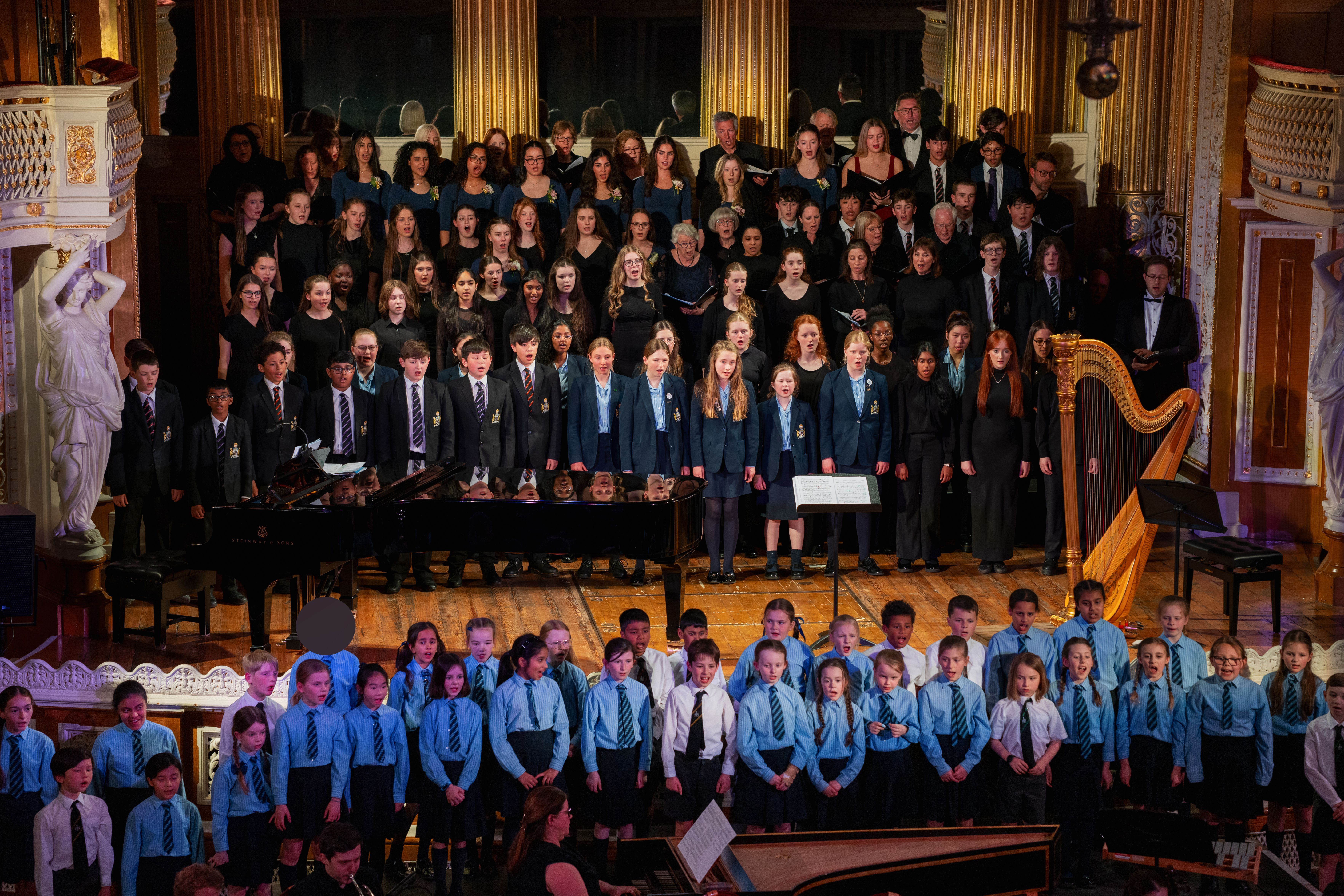U6 Student Ben Interviews Peter Hitchens
Q&A with Peter Hitchens by Ben Somervell (U6Sp)
Peter Hitchens is a controversial columnist for the “Mail on Sunday”, focusing on religion and politics and he also has an online blog.

He, like his late brother the famous atheist Christopher Hitchens, is a renowned debater and author. Peter did, however, disagree with his brother on virtually everything – Christopher was an atheist, anti-theist and left-winger but Peter is an Anglican and a Burkean conservative. Peter has appeared on “The Big Questions”, “Any Questions”, “Newsnight”, “Question Time”, “The Daily Politics”, and “This Week”. He has written seven books: “The Abolition of Britain” (published 1999), “Monday Morning Blues” (2000), “A Brief History of Crime” (2003), “The Broken Compass” (2009 and reissued as “The Cameron Delusion” in March 2010), “The Rage Against God” (2010), “The War We Never Fought” (2012), and “Short Breaks in Mordor” (2014). Peter has also presented three documentaries: “Mandela: Beneath the Halo” (Channel 4, 2004), “This Sceptic Isle” (BBC4, 2005) and “Cameron: Toff At The Top” (Channel 4, 2007). He sees himself as an “obituarist”, who laments the death of a once great nation and explains “why and how a happy, prosperous and peaceful civilisation committed a long, slow suicide”. He does, however, strongly deny being nostalgic. I asked Peter a few questions to further examine and clarify his intriguing and unique views which neatly link in with my A-Level study of religion, politics and history.
Ben Somervell: Do you prefer debating to writing?
Peter Hitchens: No, both have their own satisfactions. Both compel me to express, and so clarify, my thoughts. Debating is more immediate, and more exhilarating. But it is also more frightening.
BS: You have gone from being a revolutionary socialist to being a Burkean conservative with a lower case “c”. Did your faith play a role in the conversion of your political views?
PH: No, I don’t think so. My return to faith marched in step with my embrace of the conservative virtues.
BS: Do you think anything good came out of the 1960s?
PH: I am sure many good material things came out of that era. And some nasty prejudices were conquered or diminished. But that does not alter the fact that the main outcome was a moral and cultural revolution which did profound and lasting damage to our civilisation. I believe we could have had the one without the other. You can, for example, stop persecuting homosexuals and insulting people because of their skin colour, without abandoning the punishment of crime, without legalising mass-market pornography and without destroying Christian marriage. There is no logical connection between the things that Roy Jenkins and his allies got rid of, except that they were all features of pre-1965 Britain. Some were indefensible and should have been got rid of. Some were defensible and should have been retained.
BS: Is there now such a thing as society even though we are so diverse and divided and even though, due to secularisation, there is no longer any ultimate authority for absolute rules?
PH: Well, there obviously is, but at a much lower level of mutual obligation than there was in the more coherent society we had before the cultural revolution. Hence the growing authoritarianism of the state, proving Burke’s point that without self-restraint, you get a strong state.
BS: What is the most important political policy area?
PH: Hard to answer since I have given up practical politics. But the key to any genuinely conservative reform would be the restoration of lifelong Christian marriage to its central place. This is so impossibly unlikely that even writing it down seems silly. This is why I have given up political engagement.
BS: You recently said that you would like to see a real Christian, conservative political leader – the polar opposite of Corbyn emerge to challenge the Opposition Leader. Who would you like this to be – Daniel Hannan, Peter Bone, Brian Davies, David Davis, Philip Hollobone, or Douglas Carswell?
PH: I don’t see any such person in politics. Nor do I see how he or she could get into politics. I quite like David Davis personally, and think he is developing some interesting positions, but I don’t regard any of those you name as being viable leaders of such a movement or party.
BS: Under which circumstances do you think a country should go to war?
PH: When there is no other way of preserving its independence.
BS: Should emotions factor when making a moral decision and is it impossible to shut them out?
PH: A reasonable person’s emotions are formed by his reason and his knowledge, and strengthen his or her will to act. In unreasonable people, emotion increases unreason and reinforces ignorance.
BS: In an Oxford Union debate on the existence of God, you spoke of the desirability of God’s existence as the reason for your conversion – does this matter more than probability?
PH: It does to me. In any case, we have no theometer with which to measure the probability of God’s existence. Religious arguments would be a lot easier if people on both sides would only understand and recognise that their religious opinions were formed by their desires. Those who tediously insist that their position is a default position and requires no explanation are the worst of all. Boring beyond belief.
BS: The Bible seems to be centered around hope and optimism for the future. Your polemical columns seem to lack this – how do you reconcile this with your faith?
PH: There is no contradiction between eternal hope and temporal pessimism. Indeed, I should have thought this was the proper Christian position.
BS: Why was so much social change packed into one decade (the 1960s). Why did the decade of social change have to be the sixties? Is any of this damage reversible?
PH: Because so many forces came together at the same time, and because the old pre-1914 order finally died, as those brought up in its traditions died. You can see them, still hale but growing old, in the BBC2 ‘Great War’ series. The 1960s cultural revolution was much more about the death of old ideas than about the birth of new ones. There was a vacuum in morality, politics, literature, art and music. All kinds of rubbish were sucked into it.
BS: You said in an interview with Owen Jones that the UK is finished. Is the Church of England finished too? Why?
PH: As a mass-membership church, plainly, As a Godly power, never, as long as anyone can read the 1662 Prayer Book and the Authorised Version of the Bible, and as long as the ancient church buildings themselves survive, great sermons in stone and glass, dedicated to the Glory of God.
BS: What does the Church have to do to get more members and why has it declined?
PH: I have no idea what it can do to gain more members. I know the evangelical churches are full, but they do not seem to me to have much to do with Anglican Christianity. It has declined because, like the rest of the British establishment, it lied about the First World War, a grave sin, and could never recover its integrity thereafter.
BS: Should abortion, regardless of the circumstances and consequences, always be illegal?
PH: I think it is very hard for a Christian believer to countenance it under any circumstances. Surely adoption must always be preferable? I think if doctors act with the primary purpose of saving the mother’s life, and the baby dies as a result, that is not abortion. But the law has to make exceptions for people whose conscience is not dictated by Christian belief, and I think the Aleck Bourne case, which permitted abortions under certain narrow circumstances (it arose from the gang rape of an under-age girl) before 1967, was a good compromise. Bourne himself never performed another abortion, and campaigned against the 1967 law.
BS: In a 2013 Intelligence Squared Versus debate, you spoke in favour of the right to bear arms. You said the reason why America has so many gun massacres is because of its culture and history and the homicide rate for other weapons is also high. If British citizens had the right to bear arms, would there not be a lot more homicides? In 2009, the UK was found to be the second most violent country in Europe in terms of violent crime figures, worse than South Africa and America and the 2011 riots and the recent Walthamstow fight with some 200 teenagers seem to back this up. You said due to the lack of Christianity being taught, people, especially the young are much more violent. Why then do you want these violent people to have the right to bear arms?
PH: Actually, they already have it under the 1689 Bill of Rights, but government has unlawfully cancelled it. I make a purely theoretical point. ‘Gun control’ is an absurdity on its own terms. It only affects law-abiding people and will not keep guns out the hands of criminals, who already have them (see recent events in Manchester) . Hardly any gun crimes are committed with legally-held weapons. It is the liberals’ attempt to find a substitute for the death penalty, but as it happens there isn’t any substitute. If you want to reduce gun crime to a minimum, then execute heinous murderers and their accomplices, reliably and swiftly.
BS: Does principle matter more than practicality for you?
PH: No. But I don’t see why they should conflict. Principle, based upon Christian morality, I really just pay attention to the instruction manual we were given for the planet by the God who made it. It is inherently practical.
Latest News

- A Legacy in Song: Merchant Taylors’ Hosts Spectacular Gala
- Welcome Mr Philip Dearden: New Head of Merchant Taylors’ Schools
- Merchant Taylors’ RAF Cadets Achieve Second Place in National Finals
- Merchant Taylors’ Celebrates Cadet Achievements at Inspection Day
- Year 6 Pupils Shine in Romeo and Juliet Performance
Upcoming Events
- Easter Holiday Club 2025 on April 22, 2025 8:00 am
- Marvellous Merchants’ Superheroes on May 21, 2025 4:00 pm
Privacy Overview
| Cookie | Duration | Description |
|---|---|---|
| cookielawinfo-checkbox-analytics | 11 months | This cookie is set by GDPR Cookie Consent plugin. The cookie is used to store the user consent for the cookies in the category "Analytics". |
| cookielawinfo-checkbox-functional | 11 months | The cookie is set by GDPR cookie consent to record the user consent for the cookies in the category "Functional". |
| cookielawinfo-checkbox-necessary | 11 months | This cookie is set by GDPR Cookie Consent plugin. The cookies is used to store the user consent for the cookies in the category "Necessary". |
| cookielawinfo-checkbox-others | 11 months | This cookie is set by GDPR Cookie Consent plugin. The cookie is used to store the user consent for the cookies in the category "Other. |
| cookielawinfo-checkbox-performance | 11 months | This cookie is set by GDPR Cookie Consent plugin. The cookie is used to store the user consent for the cookies in the category "Performance". |
| viewed_cookie_policy | 11 months | The cookie is set by the GDPR Cookie Consent plugin and is used to store whether or not user has consented to the use of cookies. It does not store any personal data. |

